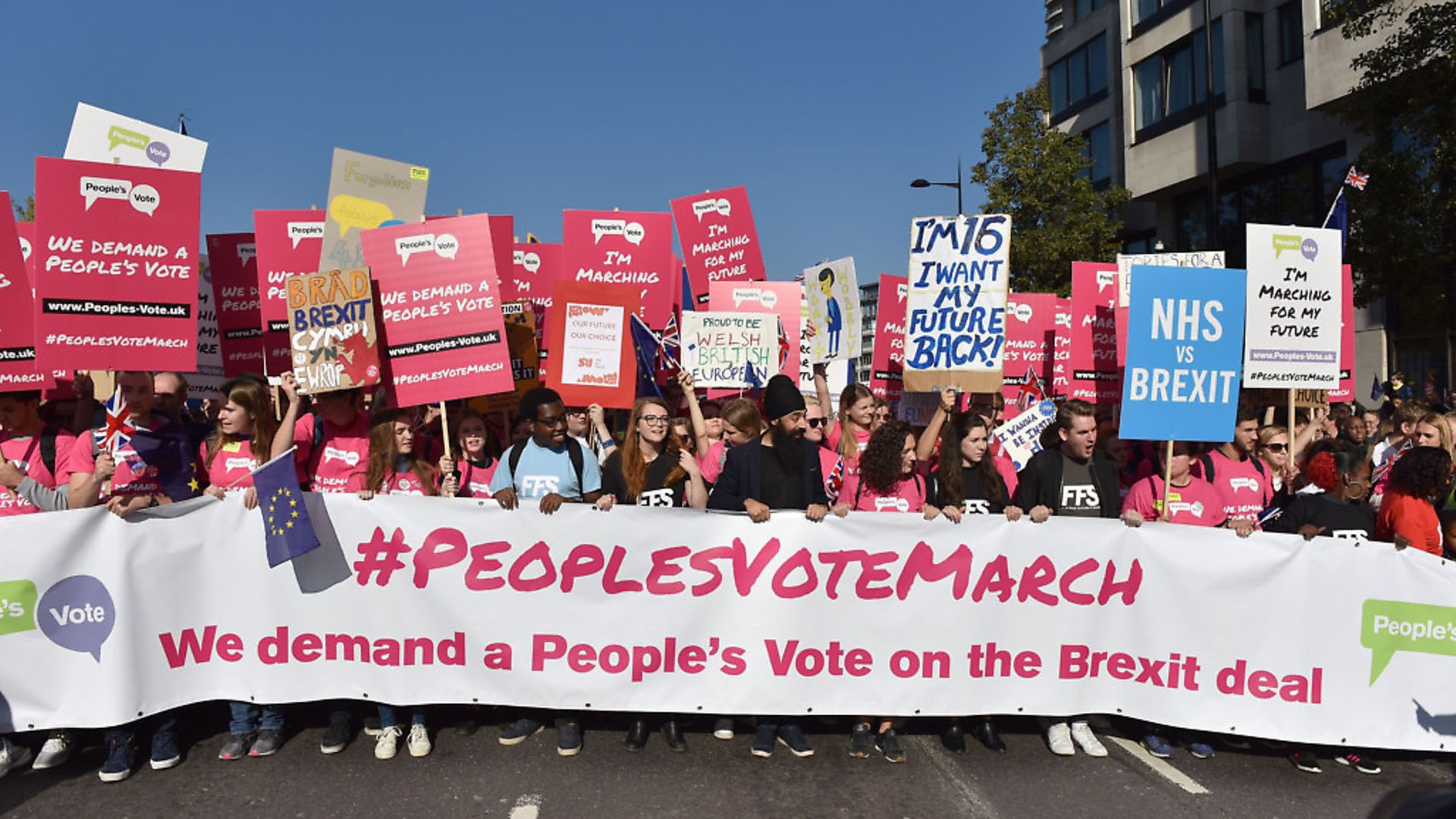
Winning the right to repeal Article 50 could bring its own problems, says JAMES BALL
Was there ever a better warning than ‘be careful what you wish for’? Hard Brexiteers are certainly getting that lesson in droves this week.
First, they campaigned to leave the EU, and got their wish – only to discover that all but the most calamitous of Brexits left the UK with far less ‘control’ than we had remaining in the EU, and even making true their oft-stated fears that Britain would become a ‘rule-taker’ from Brussels – thanks to them, if Theresa May’s deal passes, we will be.
Next, in a rebellion against a deal their desires forced May to make, they tried to show the strength of their hand by launching a leadership rebellion against the Tory PM, to reveal how weak she truly was.
The move was less an opening salvo than a boomerang: the chaotic reality of the coup fell far short of its blustered promises, and has left the political standing of many of the hard Brexiteer European Research Group possibly fatally damaged.
So far, so much fun for those among us who backed Remain, and who back stopping Brexit. But we should not get too deeply involved in Schadenfreude just yet – a victory of our own could soon easily turn on us, too.
That victory is the result of another government failure: on Tuesday, the UK Supreme Court (note: British judges in a British court) refused the government’s final bid to prevent the Court of Justice of the EU (the CJEU) – the EU’s highest court – hearing a case on whether or not Article 50 can be unilaterally revoked.
The revocation of Article 50 is absolutely central to the People’s Vote and to efforts to stop Brexit. If Article 50 notification were to be withdrawn, the UK remains in the EU on its existing terms, and all of this goes away.
People’s Vote supporters have repeatedly insisted the UK has the right to unilaterally withdraw the treaty and have published legal analysis on these lines. The author of Article 50 has also publicly stated his view that a country can revoke it without any permission from the EU or other member states – but unfortunately did not include wording along these lines in the actual text of the Article.
The EU Commission absolutely does not take that view: it has stated the UK would need permission from all 27 member states – perhaps even all of their parliaments – to revoke Article 50, and without this we are still leaving.
Despite cries from some on the Remain side that this would be easily and painlessly granted – a strange mirror image of Brexiteer cries that leaving would be easy because of German car manufacturers – this would be a difficult process. The UK could face calls to reduce or lose its rebate entirely (ironically upping the cost of membership to £350 million a week). It could face calls to enhance free movement by joining Schengen. It could even, at the extreme, be asked to set out a timetable to join the Euro.
If the ruling goes against Article 50 being unilaterally revocable, we have a big new hurdle in a People’s Vote: it would become still harder to call and win – and given neither leader of the two biggest parties support it at present, this is a genuine headache. If this ruling goes the wrong way, chances of a second ref and a win go from slim to miniscule.
But what if we win? In the short term, this would certainly enhance the chances of a People’s Vote – though getting parliament to vote in favour of holding one would be mathematically very difficult, and at present neither Labour or the Conservatives would have it in their manifestoes.
It would also still require an extension to Article 50 – it cannot logistically be held before March 29th – which unambiguously does require an overwhelming majority of EU states to give their approval.
In short, it would be a helpful ruling, but it would be no means make a second referendum a sure thing – and it would come with potentially crippling consequences for the EU.
The EU wants to focus on anything but Brexit: it has had enough of two years of Article 50 negotiations, and is hardly looking forward to a decade of renegotiating trade with a country that was once a done deal.
If triggering that precipice, and the threat to leave, can be done painlessly by any nation, the EU faces a never-ending future of political stunts in which one or more countries pulls the starting figure on leaving – great domestic politics – only to pull back after securing concessions.
With the EU facing enough crises in holding the union together already – just look at Italy, Poland, or Hungary – it would suddenly face the loss of the biggest stick in its arsenal for keeping countries in line.
A win in this case could keep the UK in the EU, at the cost of crippling the EU itself for a decade or more. Remainers, like Brexiteers, need to be careful what we wish for – we’re all getting far more lessons in unintended consequences than any of us would like.










